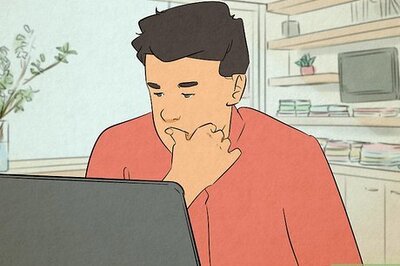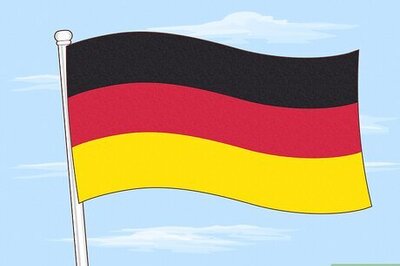
views
KAMPALA, Uganda: Uganda is tightening its lockdown measures to try and stem a surge in coronavirus infections in the East African country that is seeing an array of variants.
The measures announced late Friday by President Yoweri Museveni include a ban on private and public transportation within and across districts, including in the capital Kampala. Only vehicles carrying cargo and those transporting the sick or essential workers are permitted to operate on the roads, Museveni said in a televised speech.
The normally crowded shops in downtown Kampala, where thousands of the urban poor operate, have also been ordered shut. An ongoing nighttime curfew will stay in place.
The new measures will last 42 days.
These are urgent and temporary but extraordinary measures which we as a nation must jointly and fully embrace to protect and preserve our lives, our ways of life, Museveni said.
Museveni had avoided imposing a full lockdown in an address on June 6, limiting restrictions to movement between rural and urban areas. He said Friday he is tightening the measures now because Ugandans had not followed his previous guidelines.
Uganda is among some African countries seeing a dramatic rise in the number of infections amid a vaccine shortage. It has confirmed a total of 68,779 infections, including 584 deaths. The actual totals are believed to be much higher. Only a few thousand samples are tested daily.
Matshidiso Moeti, Africa director of the World Health Organization, spoke Thursday of a sobering trajectory of surging cases in Africa that she said should rouse everyone to urgent action.
New cases across the continent rose by nearly 30% in the past week, she said.
Africas 1.3 billion people account for 18% of the worlds population, but the continent has received only 2% of all vaccine doses administered globally. It has recorded more than 5 million confirmed COVID-19 cases, including 136,000 deaths.
Nearly 90% of African countries are set to miss the global target of vaccinating 10% of their people by September, according to the WHO.
One major problem is that COVAX, the U.N.-backed project to supply vaccine to poor corners of the world, is itself facing a serious shortage of vaccine doses.
Amid a global outcry over the gap between the haves and the have-nots, the U.S., Britain and the other Group of Seven wealthy nations agreed last week to share at least 1 billion doses with struggling countries over the next year, with deliveries starting in August.
___
Follow all of APs pandemic coverage at https://apnews.com/hub/coronavirus-pandemic, https://apnews.com/hub/coronavirus-vaccine and https://apnews.com/UnderstandingtheOutbreak
Disclaimer: This post has been auto-published from an agency feed without any modifications to the text and has not been reviewed by an editor
Read all the Latest News, Breaking News and Coronavirus News here.

















Comments
0 comment